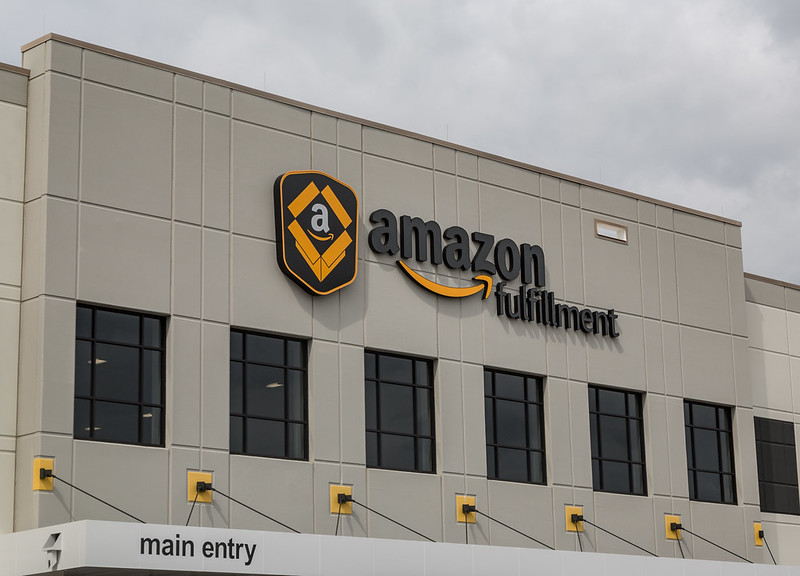
Workers at Amazon’s Nisku, Alberta “Fulfillment Centre” filed for a union vote last week—in the face of repeated COVID-19 outbreaks, grueling speed-ups and abuse by management.
On Sept. 14, Teamsters Local 362 announced it had enough support, based on the cards it had signed, to secure a union vote at the Alberta facility.
Like at “Fulfillment Centres” elsewhere, the 800 Nisku YEG1 Amazon workers work long, intense days and, with COVID-19 especially, they face hazardous conditions and abuse by management.
Globally, Amazon is notorious for forcing regular speed-ups onto its workers, threatening to fire them should they fall behind. Workers have complained repeatedly that this pace of work forces them to neglect their safety, especially during the pandemic.
The Nisku warehouse has been the site of over 100 COVID-19 infections. It was listed officially as “in outbreak,” according to the Edmonton Journal, for nearly five months. Yet, management kept it open and continued putting workers at risk—with the support of Alberta’s right-wing government.
“Amazon won’t change without a union. Be it on-job security, pace-of-work, discrimination, favouritism, or wages, the company has proven itself to be profoundly anti-worker,” a Teamsters representative said.
According to Reuters, Amazon workers in Ontario and British Columbia—at a total of nine Amazon facilities—have also started signing cards. If successful, these could be the first unionized Amazon facilities in North America.
Last fall, the company crushed a drive in Alabama with a vicious union-busting campaign, threatening reprisals against workers who voted in favor. Predictably, Amazon has already denounced the Nisku union drive in a statement to Reuters. The same company that forced its workers to brave COVID-19 outbreaks for months on end, now apparently worries—on behalf of its workers—that a union would overrepresent “the voices of a select few.”
Amazon’s owners have shown again and again that they are happy to sacrifice working class lives to boost their own profits. They will continue to do so for as long as they’re allowed to. United, Amazon workers have a chance to defend themselves.
The Nisku organizing drive has already sparked efforts at other facilities. If successful, the drive could inspire similar efforts by workers across the country.
During the Alabama union vote, at least one management-side lawyer warned that Canadian employers “should be very wary of what happened at Amazon.” Major news outlets have also raised the question of a “wave of unionization” sweeping retail and other lower wage sectors.
These “frontline” workers have borne the brunt of the crisis. All these efforts must be extended by the whole labour movement, in defence of working-class lives.

